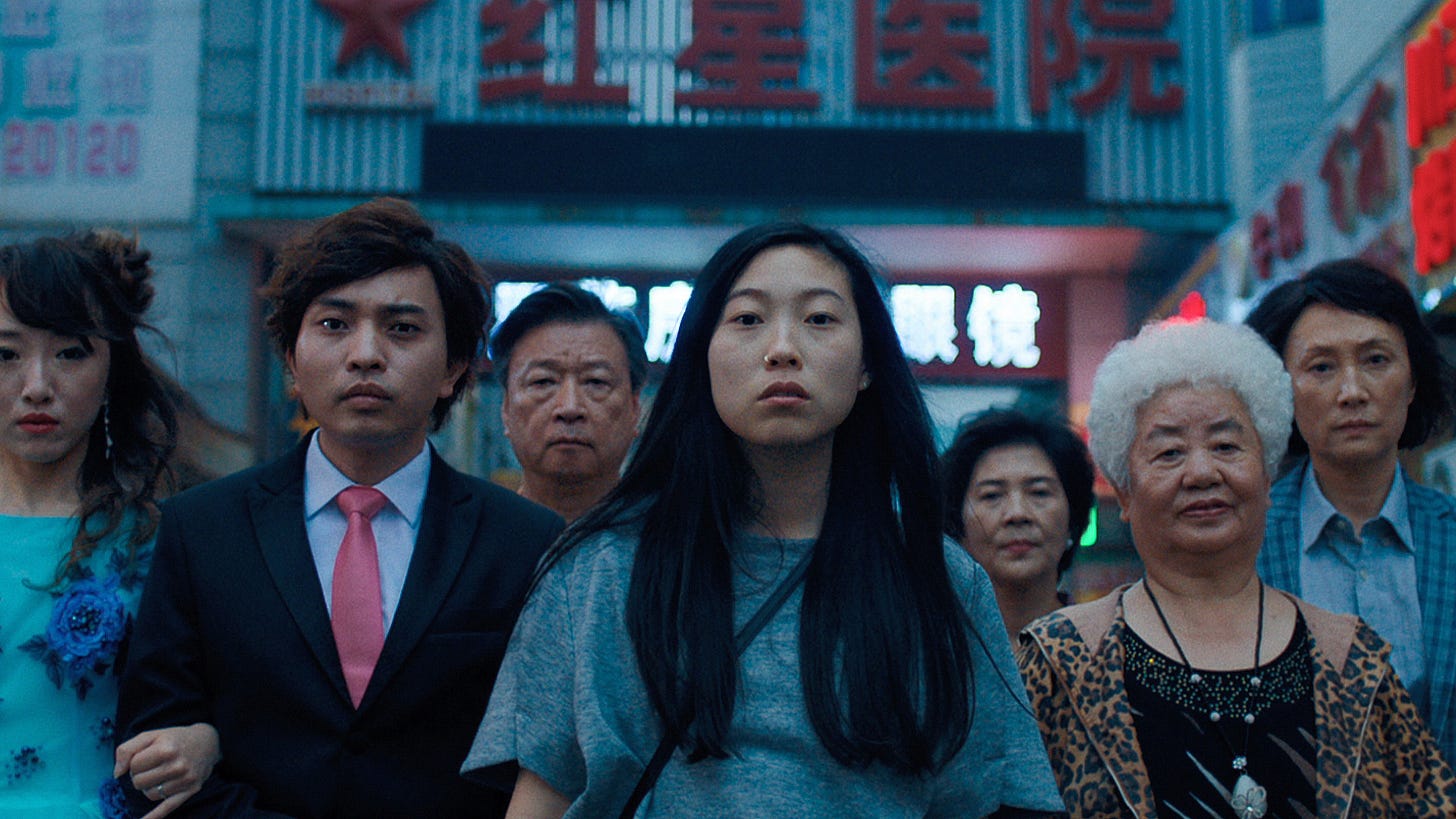Welcome to Every Tiny Thought!
I write about many things personal: growing up in China and finding home in the U.S., the bittersweetness of a life between two cultures, and the stories that gave me strength along the way, from books, films, and real life. I appreciate you for being here!
This is Part 4 of my Homecoming series about my first trip back home to Fuzhou, China in six years.
Update: all five parts are out now:
We did not want this wedding banquet.
My husband and I met at 16, started dating at 20, and married two years ago at 28 in the beautiful San Francisco City Hall. It was a small ceremony with four close friends attending, some photoshoots at the Presidio in the afternoon, and a dinner later at our favorite restaurant in San Francisco, R&G Lounge.
Our city hall wedding was everything we wanted: beautiful architecture, simple, quick, and affordable. The only regret was that our family couldn’t be there because of COVID-related travel restrictions and the astronomical flights between the US and China at the time.
To them, we got married in photos and through their imagination. In Chinese culture, getting married isn’t just about the couple, it involves the whole family. When our parents learned about our plan to visit Fuzhou this August, they wanted a real wedding ceremony.
We hated having a big wedding and being the center of attention, so we said no. With our limited time in Fuzhou, we just wanted to see friends and family, chill, and eat good food.
A few weeks later, our parents suggested an alternative: “How about just an appreciation dinner, inviting family and friends who have supported us all these years? No ceremony, just a dinner.” It sounded manageable, so we agreed.
Things quickly snowballed.
A few weeks later, the guest list had over 100 people and kept growing. Maybe we had a different understanding of what a dinner meant, but the dinner had become a full-on banquet. I was a bit annoyed at the number of people, but as long as it was just a meal, we were okay with that.
I was wrong.
My mom and my mother-in-law took charge. They checked out the venue and called to tell us that the banquet hall looked empty and depressing without any decoration.
“If we invite 200 people, we need decorations to make the place more welcoming and festive.” By then, the guest list had grown to nearly 200, including extended family, our parents’ colleagues, classmates, and friends. Seeing their excitement with the planning, I hid my frustration and went along with it.
With decorations planned and nearly 200 guests expected, our moms worried about the lack of official programming to entertain the guests. And of course, an emcee was hired to coordinate with us to plan the banquet.
With the venue decoration and a stage coming along, I couldn’t just show up in my everyday dress, so our moms booked a wedding gown try-on appointment for me. They also hired a photographer and a videographer, because “we need to remember the special day.”
“But we’ve had our special day.” I kept thinking.
Mentally, I resisted each addition but agreed out of guilt because they missed our city hall wedding two years ago. My husband resisted at first but quickly gave in and let go. He realized early on that it wasn’t about us anymore—it was for the family. I felt helpless when it was too late to back out. I felt frustrated for never having control from the beginning. I felt tricked. I even questioned myself why I wanted control in the first place.
After more than a decade in the US, I’ve been socialized to focus on what I want. All these “do what’s best for you” or “don’t let anyone else tell you how to live your life” have cultivated a growing individualistic mindset in me. It clashed with the collective culture in which I grew up. I was so absorbed in what I wanted, my wedding, my preferences, and my feelings. I failed to see what my family wanted, their preferences, or their feelings.
the self vs. the whole
Lulu Wang’s 2019 film The Farewell depicts Billi, a Chinese American, played by Awkwafina, grappling with internal conflicts as she travels to China for a staged wedding so that her family can gather and say goodbye to her Nai-Nai (grandmother), who has cancer but doesn’t know.

Billi, frustrated by the lie, confronts her uncle about why the whole family is lying to Nai Nai, he responds:
Billi, there are things you misunderstand. You guys moved to the West long ago. You think one's life belongs to oneself. But that's the difference between the East and the West. In the East, a person's life is part of a whole. Family. Society.
You want to tell Nai Nai the truth, because you're afraid to take the responsibility for her. Because it's too big of a burden. If you tell her, then you don't have to feel guilty. We're not telling Nai Nai because it's our duty to carry this emotional burden for her.
When I first watched this movie, I understood Billi’s uncle and knew I’d never feel as conflicted as Billi. I was certain of the culture that I came from.
Yet, I’d forgotten that I am who I am today because of what my family has invested in me: time, money, encouragement, and the emotional toll of sending their daughter far from home for a better future. I didn’t get here on my own. Going along with a banquet they wanted so that they could share their happiness with the world felt like the least I could do, yet I resisted it.
A conversation with a colleague moved the needle for me in the end. Coming from an Italian family, her family took over the wedding planning and she ended up having a last. She said,
“The marriage is yours, and the wedding belongs to the family. You already had yours. Let them have theirs.”
So I went with the flow and let them have the party. Everything felt easier after that. It’s a celebration, after all.
When we returned to Fuzhou, banquet-related appointments filled our days: trying on rental gowns, finalizing details with the emcee, putting together a playlist, and coordinating with the photographer and videographer.
Our moms respected our wish not to have an official ceremony. Instead, we sat on the stage with the emcee and shared our stories through a Q&A format: how we first met, fell in love, managed a long-distance relationship, and built our life in the U.S. For many present, it was a decade’s worth of updates, as they hadn’t seen us since we moved abroad. Everyone had a smile on their face, our parents, grandparents, aunts, uncles, and family friends who had known us since we were born. Most importantly, we are finally married, in the eyes of the family.
In the past, each trip home was short and limited to catching up with close families and friends. There was never enough time for everyone. Somehow, this banquet allowed us to see almost everyone we knew in one evening and kept them up to date on our lives in California.
Later that evening, some of our closest friends came to our hotel room after other guests had left. We sat down in a circle as each one recounted how they met us, whether in school, on a study abroad trip, at college, or reconnected in the U.S. long after high school. Friends from different phases of our lives converged. We gossiped about other classmates, reminisced on our teenage days, and talked about the fun times in school.
It was well past midnight, and we were all tired after a long day, but we kept going. I don’t know when a moment like this will come around again.
I didn’t want it to end.
Thank you for reading Part 4 of my homecoming series.
Here are the three films I loved with a wedding banquet at the heart of the story. If you have other recommendations, let me know in the comments.
The Wedding Banquet by Ang Lee (1993)
Yi Yi by Edward Yang (2000)
The Farewell by Lulu Wang (2019)
Quick update:
I’ve turned on paid subscriptions. For now, most of the posts will remain free. A paid subscription is the best way to support my writing and caffeinate my writing sessions. Occasionally, posts that explore deeply personal topics will only be accessible to paid subscribers to keep it to a smaller audience.
If you are not in a position to become a paid subscriber, you can also buy me a coffee to support this publication and to caffeinate my writing sessions. It helps me more than you realize.
A heartfelt thank you to
for encouraging me to launch paid subscriptions more than a year ago, believing in my writing, and becoming the very first paid subscriber. Your support means the world to me, and I am forever grateful.Thomas Kneeland is a poet, educator, community leader, and visual artist. He is the author of the chapbook, We Be Walkin’ Blackly in the Deep (Marian University), and one of ten 2022 Frontier Poetry Global Poetry Prize finalists for the continent of Africa. He is the Founder and Editor-in-Chief of The Elevation Review. He shares amazing poetry through his Substack. Check it out below:







Lovely decoration and wise decision to go along with the tradition. I am sure you will savor the moments in the years the come!
BTW, I love the R&G Lounge! 😊
Yuezhong, this brought smiles and tears.. I can so related to the dual cultural expectations, even today, I am trying to fit into both. I appreciated you voicing your parents view, and why they feel the need to invite everyone. This resonates in the Indian community and I have seen my friends battle the scenarios with their children as they plan the big weddings. As a parent, this may be influenced by my culture, I feel I would want to invite folks that may have helped me with pregnancies, early years of my children's lives and totally understand that my children may not know them and feel why these strangers are at their wedding. For me it's a family celebration. I don't know what will happen when I have to cross that bridge...,